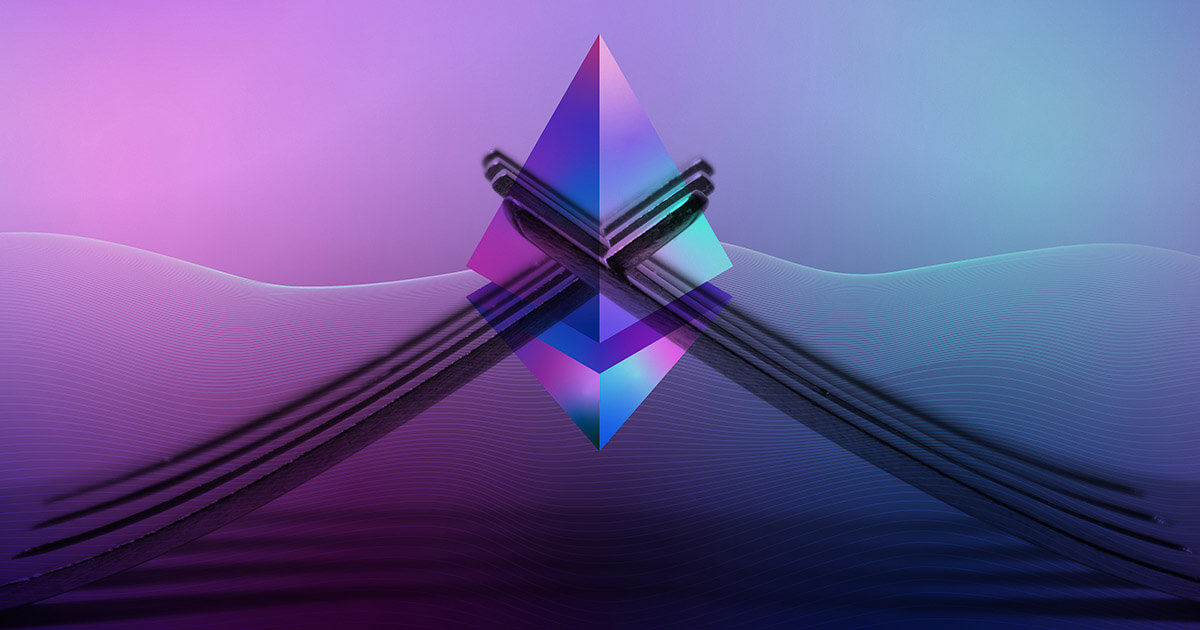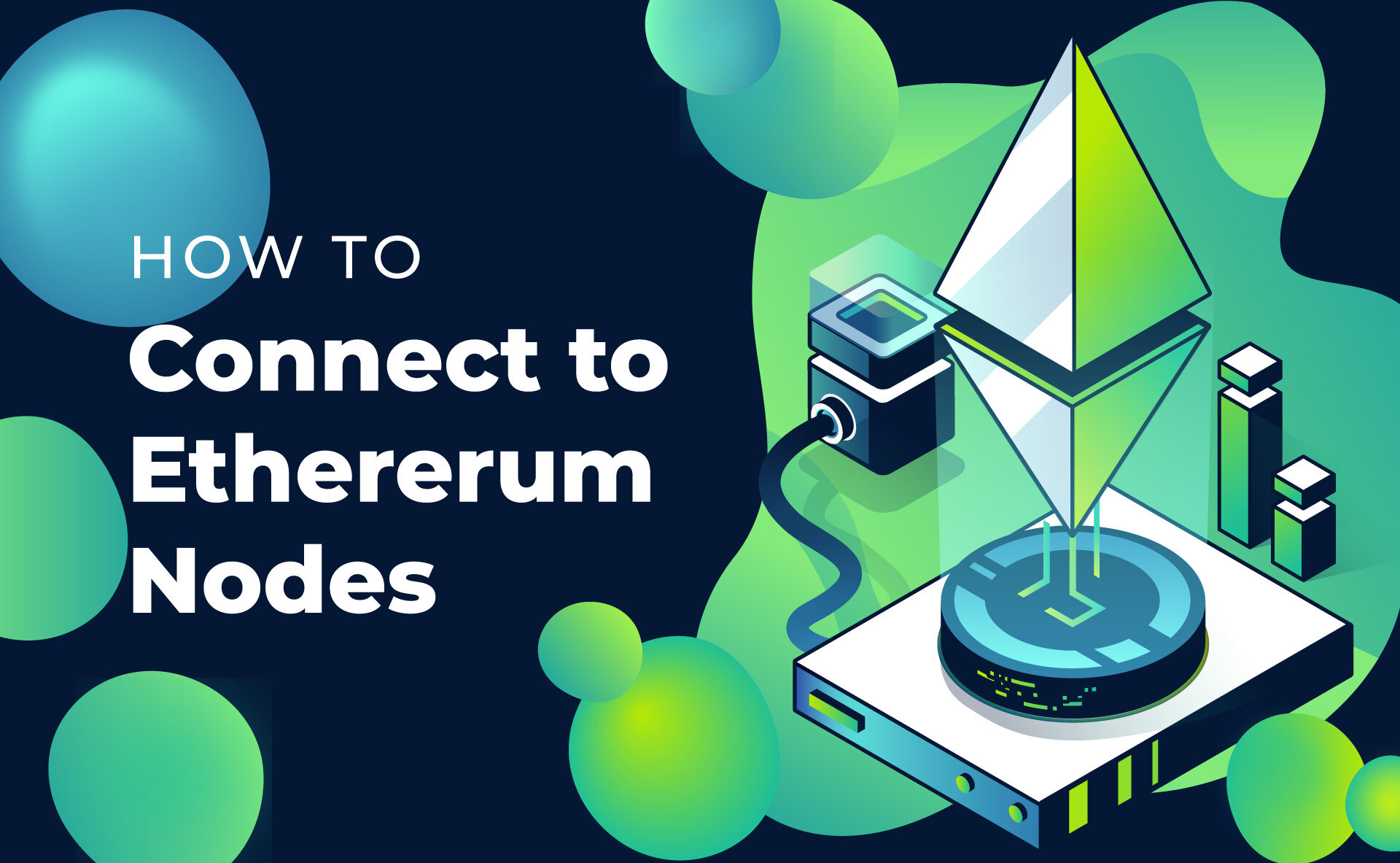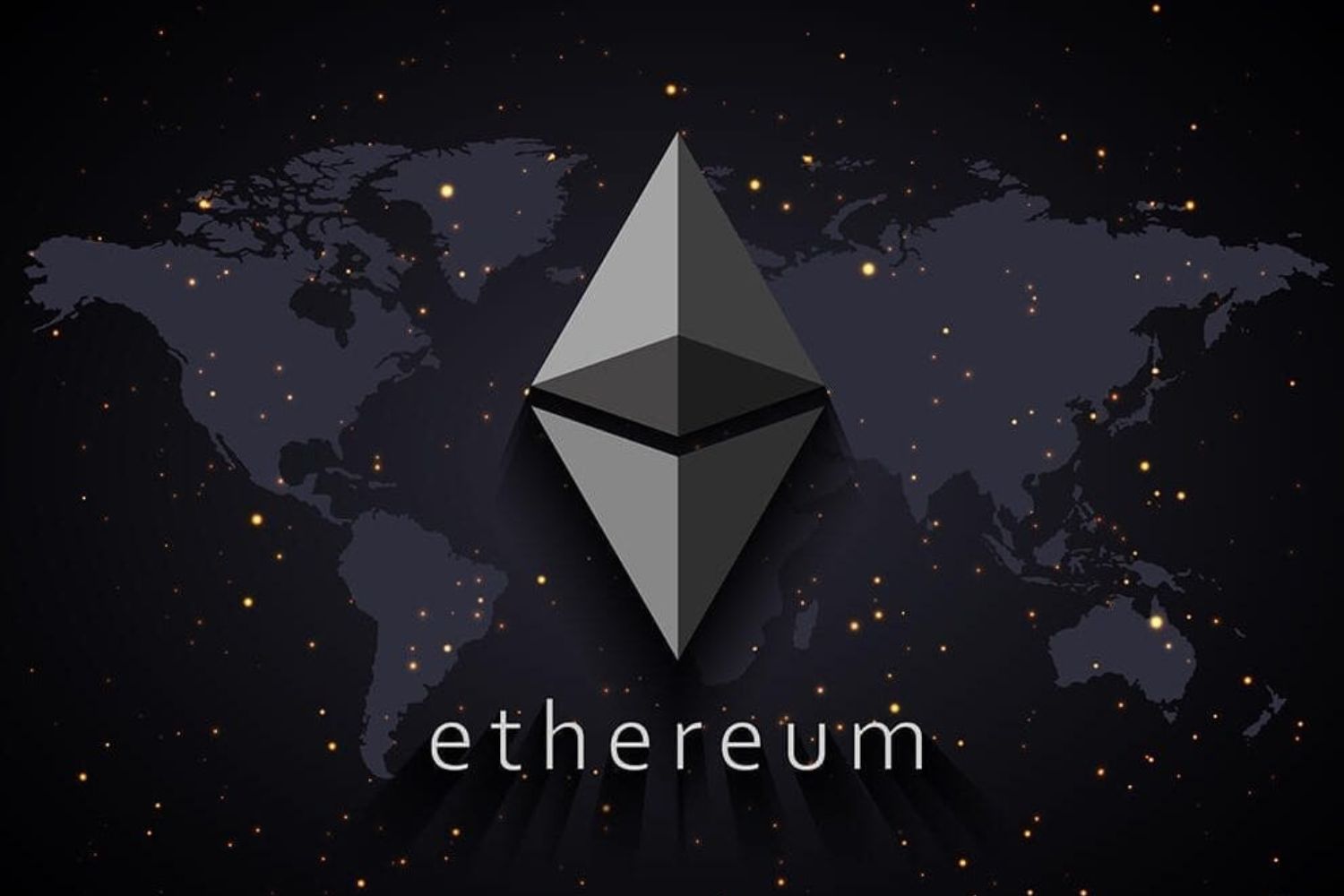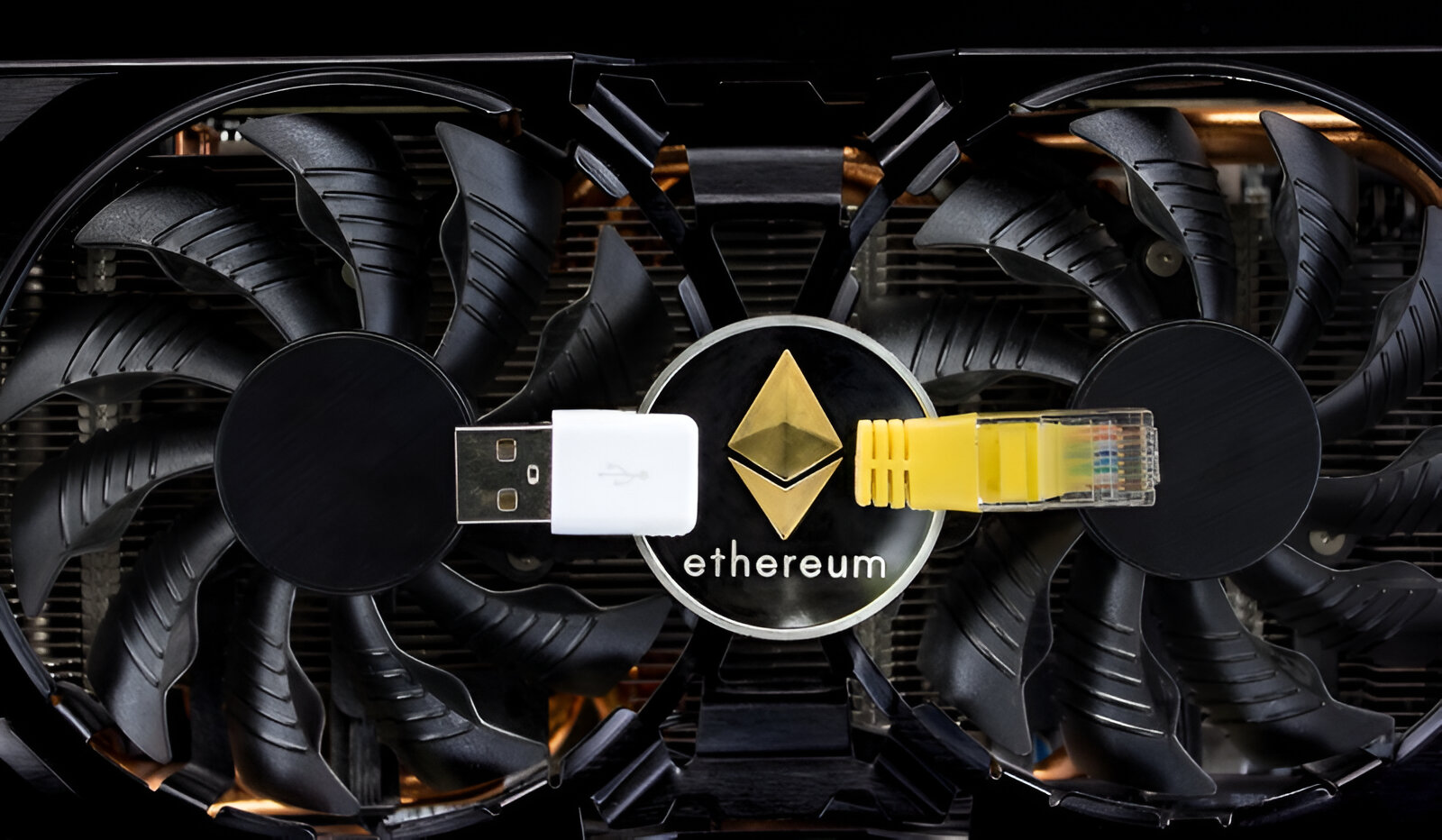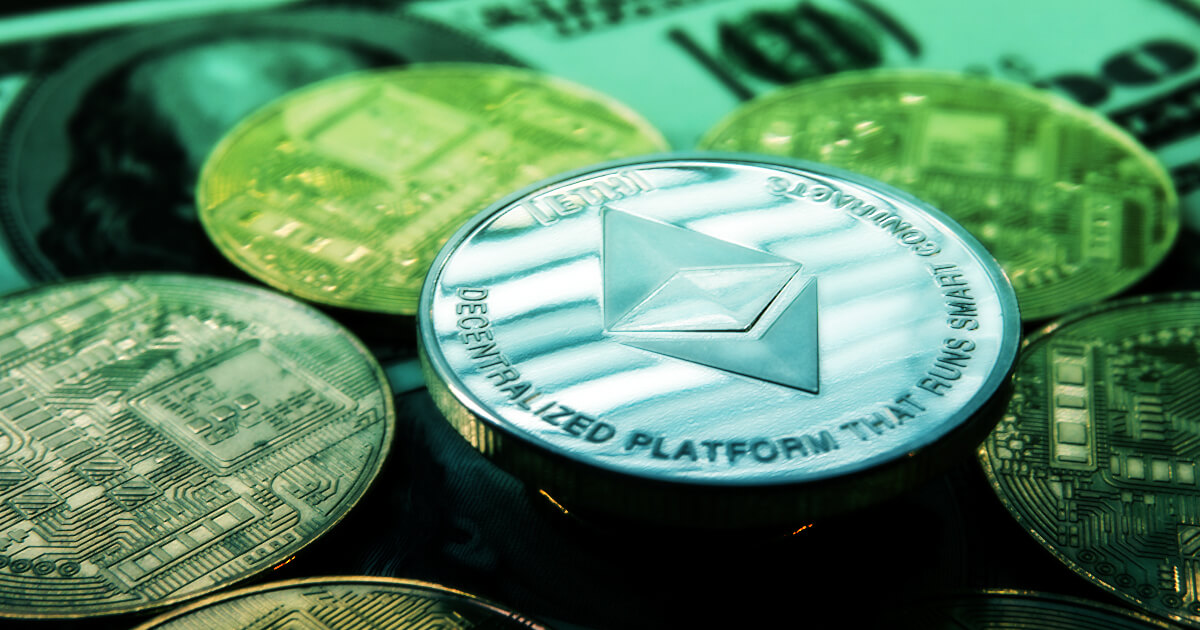Introduction
The Ethereum blockchain is a decentralized, open-source platform that enables the development of smart contracts and decentralized applications (dApps). As a participant in the Ethereum network, you will need to download and synchronize the entire blockchain to access its features and functionalities. However, the time it takes to download the Ethereum blockchain can vary significantly depending on several factors.
In this article, we will explore the factors that affect the download time of the Ethereum blockchain and provide tips to speed up the process. Whether you are a cryptocurrency enthusiast, a developer, or someone curious about the Ethereum network, understanding the time it takes to download the blockchain is essential for planning and optimizing your experience.
Before we dive into the factors affecting the download time, it’s important to note that the Ethereum blockchain is continuously growing, with new blocks being added to the chain at regular intervals. As a result, the size of the blockchain increases over time, which directly impacts the time it takes to download and synchronize with the network.
When calculating the approximate time required to download the Ethereum blockchain, it’s crucial to consider factors such as internet connection speed, computer processing power, hard drive speed and space, and the actual size of the blockchain. Understanding these factors will help you plan accordingly and potentially optimize your download time.
Now, let’s delve into each of these factors in more detail to gain a comprehensive understanding of their impact on the download time of the Ethereum blockchain.
Factors Affecting Ethereum Blockchain Download Time
The time it takes to download the Ethereum blockchain can vary based on several influencing factors. Let’s take a closer look at each of these factors:
Internet Connection Speed: One of the primary factors affecting the download time of the Ethereum blockchain is the speed of your internet connection. A faster and more stable internet connection will allow for quicker data transfer, resulting in a shorter download time. If you have access to a high-speed internet service provider, it is recommended to take advantage of it for a smoother and faster download process.
Computer Processing Power: The processing power of your computer also plays a crucial role in the download time. A more powerful computer with a faster processor and ample RAM will be able to process the data and sync with the Ethereum network more efficiently. If you have an older or slower computer, it might take longer to download and synchronize the blockchain.
Hard Drive Speed and Space: The speed and available space on your hard drive can impact the download time as well. When syncing the Ethereum blockchain, your computer needs to read and write data to the hard drive continuously. Upgrading to a solid-state drive (SSD) can significantly improve data transfer speeds and reduce the overall download time. Additionally, ensuring that you have enough free space on your hard drive to accommodate the growing size of the blockchain is important to prevent any disruptions during the download process.
Size of the Ethereum Blockchain: As mentioned earlier, the Ethereum blockchain is continuously growing as more blocks are added. The larger the blockchain, the longer it will take to download and synchronize. At the time of writing, the Ethereum blockchain size is several hundred gigabytes, and it is expected to grow further. It is important to consider the size of the blockchain when estimating the download time and plan accordingly.
By understanding these influencing factors, you can assess the potential download time and make necessary adjustments to optimize the process. In the next section, we will provide tips and recommendations to speed up your Ethereum blockchain download.
Internet Connection Speed
Having a fast and stable internet connection is crucial for a smooth and speedy download of the Ethereum blockchain. Here are some key factors to consider:
Bandwidth: The amount of bandwidth available to you plays a significant role in determining the download speed. Bandwidth refers to the maximum amount of data that can be transmitted over your internet connection in a given period. Higher bandwidth allows for faster downloading of blockchain data. If possible, opt for a high-speed internet plan that offers sufficient bandwidth to accommodate the large size of the Ethereum blockchain.
Connection Type: The type of internet connection you have can impact download speeds. Broadband connections like cable, fiber, or DSL generally offer faster speeds compared to dial-up or satellite connections. If you have the option, consider upgrading to a broadband connection to ensure a faster and more reliable download process.
Network Congestion: Network congestion occurs when there is a high volume of data traffic on your internet service provider’s network. During peak usage hours, such as evenings or weekends, network congestion could slow down your download speed. To mitigate this, consider scheduling your downloads during periods of lower network traffic for faster and more consistent download rates.
Signal Strength: If you use a wireless internet connection, the signal strength can affect the download speed. Weak signals or interference from other devices can lead to slower internet speeds. Make sure your device is close to the Wi-Fi router or consider using a wired connection for a more stable and faster download experience.
Testing Speed: Before starting your Ethereum blockchain download, it’s advisable to test your internet connection speed. You can use online speed test tools to measure your download speed, upload speed, and latency. This will give you an idea of your current internet speed and help you identify any potential issues that might affect the download process.
Remember that the download time of the Ethereum blockchain is influenced by various factors and not solely dependent on your internet connection speed. However, ensuring a fast and stable internet connection will certainly contribute to a smoother and quicker download experience.
Computer Processing Power
The processing power of your computer has a significant impact on the download time of the Ethereum blockchain. Here are some key factors to consider:
Processor Speed: The speed of your computer’s processor, usually measured in gigahertz (GHz), determines how quickly it can process data. A faster processor can handle the computational requirements of syncing with the Ethereum network more efficiently, resulting in a faster download time. If you have an older computer with a slower processor, it may take longer to synchronize with the blockchain.
RAM (Random Access Memory): RAM is the temporary storage area where your computer processes and stores data in real-time. Having ample RAM is important when syncing the Ethereum blockchain, as it allows for smoother and faster data processing. Insufficient RAM may lead to slowdowns or even crashes during the download process. If your computer has limited RAM, consider upgrading it to improve the performance of the blockchain download.
Background Processes: Running resource-intensive programs or having multiple applications open while downloading the blockchain can impact your computer’s processing power. These background processes consume CPU resources and memory, potentially slowing down the download speed. Before starting the blockchain download, close unnecessary applications and pause any resource-intensive processes to free up system resources for the synchronization process.
Overheating: Overheating can lead to decreased performance and potential damage to your computer’s components. When your computer runs resource-intensive tasks like downloading and syncing the blockchain, it generates heat. Ensure that your computer is adequately cooled, either through proper ventilation or by using cooling pads or fans. Keeping the temperature in check can help maintain optimal performance and prevent any interruptions during the download process.
Operating System: The operating system running on your computer can also impact the download time. Optimize your operating system by regularly updating it to the latest version and applying relevant patches and updates. These updates often include performance enhancements and bug fixes that can improve the overall efficiency of your computer’s processing power.
By considering these factors and ensuring that your computer has sufficient processing power, you can enhance the speed and efficiency of your Ethereum blockchain download. Keep in mind that while a powerful computer can contribute to a faster download time, it is not the sole factor at play. The size of the blockchain and the speed of your internet connection are also critical factors to consider.
Hard Drive Speed and Space
The speed and available space on your hard drive can significantly impact the download time of the Ethereum blockchain. Here are some key factors to consider:
Hard Drive Type: The type of hard drive you are using can affect the download speed. Traditional hard disk drives (HDDs) have moving parts, which can result in slower data transfer rates. On the other hand, solid-state drives (SSDs) have no moving parts and offer much faster read and write speeds. Consider upgrading to an SSD if you want to accelerate the blockchain download process and enhance overall system performance.
Available Space: The Ethereum blockchain is continuously growing, and its size can reach several hundred gigabytes. It is crucial to ensure that you have enough free space on your hard drive to accommodate the expanding blockchain. Running out of space during the download may cause interruptions or errors. Regularly check your hard drive’s available space and make sure you have sufficient room for the blockchain data. If necessary, delete unnecessary files or consider adding an additional hard drive to expand your storage capacity.
Fragmentation: Fragmentation occurs when files on your hard drive are divided into multiple fragments instead of being stored contiguously. This can slow down read and write speeds, impacting the download time. Periodically defragmenting your hard drive can help optimize data access and improve overall performance. Use the built-in defragmentation tools provided by your operating system or consider using third-party defragmentation software.
Data Transfer Rate: The data transfer rate of your hard drive determines how quickly it can read and write data. It is crucial to choose a hard drive with a high data transfer rate for faster blockchain downloads. When selecting an SSD or HDD, consider the specifications provided by the manufacturer, such as the read and write speeds, as these can greatly impact the download time.
Hardware Health: Ensure that your hard drive is in good health to avoid any unexpected issues during the download process. Regularly monitor the health of your hard drive using diagnostic tools or software provided by the manufacturer. If your hard drive shows signs of deterioration or potential failure, it is advisable to replace it to avoid data loss and ensure a smooth download experience.
By considering these factors and optimizing your hard drive speed and space, you can minimize download times and ensure a more efficient synchronization of the Ethereum blockchain. Remember to regularly maintain your hard drive and keep an eye on available space to prevent any downloading complications.
Size of the Ethereum Blockchain
The size of the Ethereum blockchain is a crucial factor to consider when estimating the download time. As more blocks are added to the blockchain, its size continues to grow. Here are some key points to understand:
Current Size: At the time of writing, the Ethereum blockchain size is several hundred gigabytes. However, it is important to note that the size of the blockchain is continuously increasing as new blocks are added. This means that the download time will be longer as the blockchain grows in size.
Block Size: Each block in the Ethereum blockchain has a maximum size limit. However, the actual size of each block can vary depending on the number of transactions, smart contract interactions, and additional data stored in the block. The larger the block size, the longer it will take to download and sync with the network.
Blockchain Growth: The growth of the Ethereum blockchain is influenced by various factors, including the number of users, transactions, and decentralized applications (dApps) being built on the network. As the popularity and adoption of Ethereum increase, so does the size of the blockchain. It is important to keep this growth in mind when estimating the download time, as it will impact the overall synchronization process.
Syncing Method: There are different methods to sync with the Ethereum blockchain, such as full node synchronization or light client synchronization. Full node synchronization involves downloading and verifying the entire blockchain, while light client synchronization only downloads recent block headers. Light client synchronization is faster, but it relies on trusted servers for some data. The choice of syncing method can affect the download time, especially if you opt for full node synchronization.
Planning for the Future: Considering the growing size of the Ethereum blockchain, it’s important to plan for future updates and expansions. Ensure that you have enough storage space to accommodate the increasing blockchain size. Regularly check for updates and improvements in Ethereum client software, as these updates may include optimizations to streamline the download and synchronization process.
As the Ethereum network continues to evolve and gain popularity, the size of the blockchain will inevitably increase. Understanding the current size of the blockchain and its growth pattern will help you plan your download time and make necessary adjustments to optimize the synchronization process.
Tips for Faster Ethereum Blockchain Downloads
Synchronizing with the Ethereum blockchain can be a time-consuming process, especially considering its growing size. However, there are several tips and techniques you can employ to speed up the download time. Here are some recommendations:
Using a Solid State Drive (SSD): Upgrading your hard drive to an SSD can significantly improve the speed of blockchain downloads. SSDs offer faster read and write speeds compared to traditional hard disk drives (HDDs), resulting in quicker data transfer and synchronization. Consider investing in an SSD if you want to optimize your Ethereum blockchain download experience.
Selecting a High-Speed Internet Service Provider: The speed and stability of your internet connection play a crucial role in the download time of the Ethereum blockchain. If available in your area, opt for a high-speed internet service provider. Look for packages that offer higher bandwidth, faster download speeds, and lower latency to ensure a smooth and speedy download process.
Using Ethereum Clients with Fast Sync: Ethereum clients, such as Geth or Parity, offer different syncing modes. The “fast sync” mode allows you to download only the necessary data to verify the blockchain’s validity, skipping over unnecessary historical data. This can significantly reduce the download time compared to a full sync. Ensure that you are using the latest version of the Ethereum client to take advantage of any performance improvements.
Optimizing Firewall and Security Software: Firewalls and security software can sometimes interfere with the blockchain download process. Ensure that your firewall settings allow the Ethereum client to connect to the necessary network ports and communicate with the Ethereum network unhindered. Adding exceptions to your antivirus and firewall software for the Ethereum client can prevent unnecessary scanning and improve the overall download speed.
Synchronize During Off-Peak Hours: Downloading the Ethereum blockchain during off-peak hours can often result in faster speeds. Internet traffic is typically lower during early mornings or late evenings, reducing network congestion. By syncing during these hours, you can potentially take advantage of a faster and more stable internet connection, leading to quicker blockchain downloads.
Regularly Update Ethereum Client Software: Ethereum client software, such as Geth or Parity, receives regular updates and optimizations. Make sure you are using the latest version of the client to benefit from any performance enhancements that can improve the download speed. Regularly checking for updates and installing them as they become available ensures that you stay up to date with the latest improvements.
By following these tips, you can optimize your Ethereum blockchain download and synchronization process, reducing the time it takes to access the network’s features and functionalities. Remember to consider the size of the blockchain, your computer’s processing power, and other factors discussed earlier to fully optimize your download experience.
Using a Solid State Drive (SSD)
Upgrading your hard drive to a solid-state drive (SSD) can significantly improve the speed and efficiency of downloading the Ethereum blockchain. Here are some key reasons why using an SSD is beneficial:
Faster Data Transfer Speeds: SSDs offer significantly faster data transfer speeds compared to traditional hard disk drives (HDDs). This faster read and write speed allows for quicker access to the blockchain data, resulting in faster synchronization. The increased data transfer speed of an SSD can greatly reduce the time it takes to download and sync with the Ethereum network.
Improved Random Access Time: SSDs have faster random access times, which means they can quickly retrieve and process data from different parts of the drive. Since blockchain synchronization involves accessing various blocks of data, the improved random access time of an SSD can greatly enhance the overall speed and efficiency of the download process.
Lower Latency: SSDs have lower latency compared to HDDs. Latency refers to the time it takes for the drive to respond to a read or write request. With lower latency, an SSD can quickly retrieve and write data, resulting in faster synchronization with the Ethereum blockchain.
Reliability and Durability: Unlike HDDs, SSDs have no moving parts, making them more resistant to physical damage caused by shock, vibrations, or drops. This increased durability reduces the risk of data loss and ensures a more reliable download process. Additionally, the absence of moving parts also results in less noise and heat generation, improving the overall system stability.
Long-Term Cost-Efficiency: While SSDs tend to be more expensive per unit of storage compared to HDDs, it’s important to consider the long-term cost-efficiency. The faster download time of an SSD can significantly reduce the time spent syncing with the Ethereum blockchain and frees up valuable resources on your computer. This means less electricity consumption, longer hardware lifespan, and improved overall productivity.
To take full advantage of an SSD for Ethereum blockchain downloads, consider the following tips:
- Choose an SSD with sufficient storage capacity to accommodate the growing size of the blockchain.
- Ensure that your computer’s motherboard has the necessary connectors to support an SSD.
- Back up your important data before upgrading to an SSD to prevent any potential data loss during the migration process.
- When installing the Ethereum client, select a storage location on the SSD for maximizing performance.
- Regularly update the firmware of your SSD to ensure optimal performance and compatibility with Ethereum client software.
By upgrading to an SSD, you can significantly enhance the speed, efficiency, and reliability of downloading the Ethereum blockchain. The fast data transfer speeds, improved random access time, and overall durability make SSDs an excellent choice for optimizing your blockchain synchronization process.
Selecting a High-Speed Internet Service Provider
Choosing a high-speed internet service provider (ISP) is crucial for ensuring a fast and reliable download of the Ethereum blockchain. Here are some key considerations when selecting an ISP:
Available Speed Options: Different ISPs offer various speed options, typically measured in megabits per second (Mbps) or gigabits per second (Gbps). It is essential to select an ISP that provides high-speed plans suitable for your needs. Look for plans that offer higher bandwidth to accommodate the large size of the Ethereum blockchain.
Reliability and Uptime: Check the reputation and reliability of different ISPs in your area. Look for reviews and ratings to determine their track record in terms of service uptime and reliability. A reliable ISP with minimal downtime ensures a consistent internet connection and minimizes interruptions during the download process.
Fiber Optic or Cable Connections: Fiber optic and cable connections are known for their high-speed capabilities. If available in your area, consider opting for an ISP that offers fiber optic or cable connections for faster and more stable internet speeds. These connections have the potential to significantly reduce the time required to download and sync with the Ethereum blockchain.
Data Caps and Throttling Policies: Some ISPs impose data caps or enforce throttling policies, where they reduce your internet speed once you exceed a certain amount of data usage. Ensure that the ISP you choose provides plans without data caps or restrictive throttling policies. Having unlimited data and unrestricted speeds will allow for a smoother and uninterrupted download process.
Customer Support: Assess the quality of customer support offered by different ISPs. In case of any technical issues or concerns during the download process, prompt and reliable customer support can be crucial in resolving problems quickly. Look for ISPs that offer 24/7 customer support and multiple communication channels (phone, email, live chat) for easy access to assistance when needed.
Price and Value: Consider the pricing structure of different ISPs and evaluate the value you are getting for the price. While faster speeds may come at a higher cost, assess whether the offered speed and service justify the price. Compare the plans and offerings of various ISPs in your area to find the best balance between speed, reliability, and cost-effectiveness.
Reviews and Recommendations: Research and read reviews or seek recommendations from friends, family, or online communities regarding ISPs in your area. Real-life experiences and feedback can provide valuable insights into ISP performance, customer satisfaction, and overall service quality.
By carefully considering these factors, you can select a high-speed internet service provider that meets your requirements and ensures a smooth and efficient download of the Ethereum blockchain.
Closing Thoughts
Downloading and synchronizing with the Ethereum blockchain is an essential step for anyone interested in participating in the Ethereum network. While the process can take time, understanding the factors that affect the download time and implementing optimization techniques can significantly improve the speed and efficiency of the process.
Factors such as internet connection speed, computer processing power, hard drive speed and space, and the size of the Ethereum blockchain all play a role in determining how long it takes to download and sync with the network. By considering these factors and making necessary adjustments, you can minimize download times and ensure a smoother experience.
Optimizing your internet connection speed by selecting a high-speed internet service provider, upgrading to a solid-state drive (SSD), and optimizing your computer’s processing power can greatly enhance the overall download speed. Additionally, managing your hard drive space, regularly updating the Ethereum client software, and syncing during off-peak hours can contribute to a faster download process.
As the Ethereum blockchain continues to grow and evolve, it’s crucial to stay informed about updates and improvements in the Ethereum client software and networking protocols. Keeping your software up to date ensures that you have access to the latest optimizations, security enhancements, and performance improvements.
Finally, remember that the download time of the Ethereum blockchain can vary based on individual circumstances, and it’s important to plan accordingly. Patience is key, as the process may take several hours or even days, depending on the size of the blockchain and the speed of your internet connection.
By following the tips and techniques outlined in this article, you can optimize your Ethereum blockchain download and synchronization process, enabling you to fully leverage the decentralized and innovative functionalities offered by the Ethereum network.









